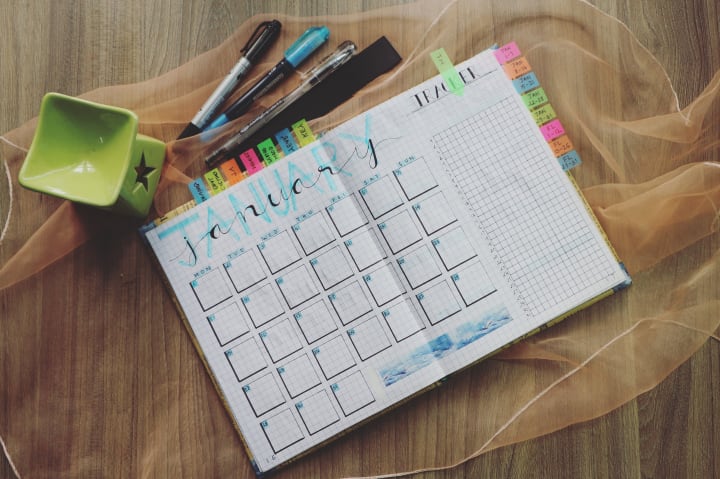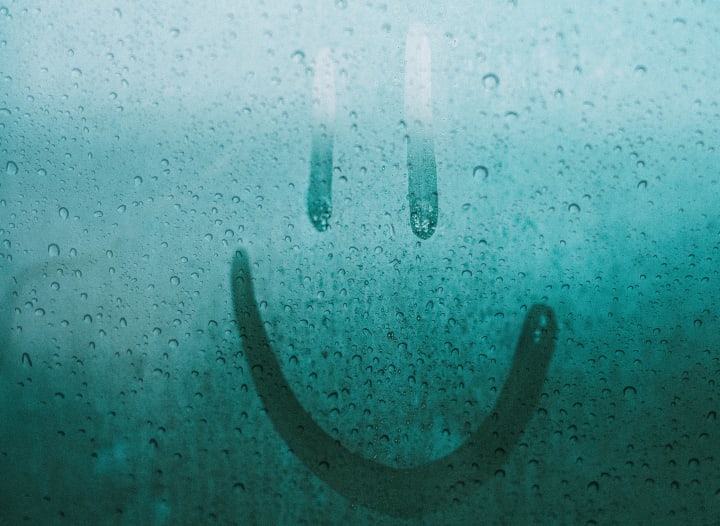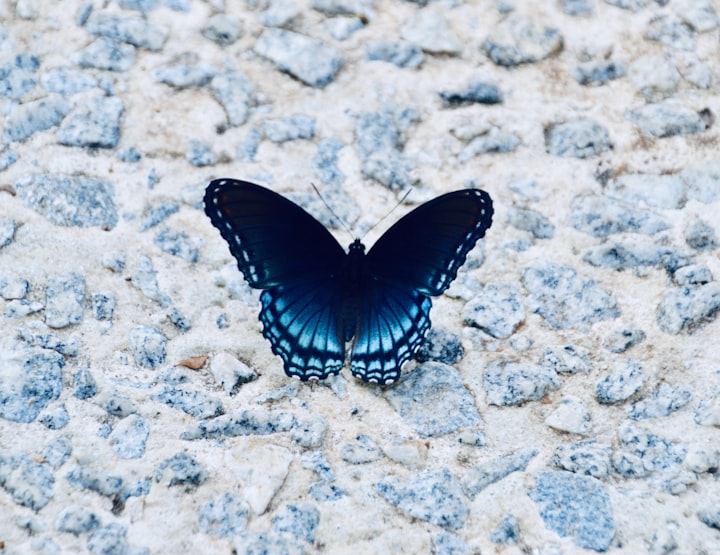
In this article I’ll be talking about the seven main lifestyle changes that can be used to dramatically change your life for the better. Most of them have scientific backing and have been researched a bunch, but some of the other tips come from my own experience.
My name is Jon. I have swam, for a long time, in the rivers of depression – and trust me, the waters run deep. But I did it, I managed to clamber myself out and crack on with the great things in life. I figured I could potentially help people in a similar position. If you’re stuck in a rut, if you look at people at the top of their field and want to be them, if you want to manage your life better or if you’re like me and prone to long bouts of depression and anxiety, then feel free to treat this article as a guide to helping you boss your life. Try only one, try them all, or try a mixture of them and see what sticks. Personally I do them all – though that’s not to say I suddenly switched my life around over night. It takes time. Get into the habit of doing only one new thing at a time and, once you’ve got that one down, then move onto another one. If you have a go at them all at once you’ll burn out or fail and tell yourself that this stuff doesn’t work. Go slow. It’s baby steps, but given enough time you’ll look back and be thankful you took them.

1. Journal
I’ve said this to friends and I’ll say it you; if I could only give you one bit of advice, one little nugget of wisdom – it would be get into journaling. The benefits of journaling have been widely documented and studied. It is the one thing the rest of these all boil down to. In fact even if you ignored all the other bits of advice in here and still wrote everything down, I think you’d end up clambering out of that river by yourself.
It allows you to track things in your life. I personally write down, at the end of every day, how many alcohol and drugs I’ve taken, how much tobacco I’ve smoked, how long I’ve meditated for and how long my run was. It doesn’t mean I have to be good all the time – don’t get me wrong, I enjoy going out and drinking, and sometimes I’ll socially smoke. It’s not like I can’t do those things. I just keep track of them, so the next day, or the next week I can look back over the last few pages and see if I’ve smoked for too many days in a row, or not run for the whole of the past week. Without my journal it would be so easy to lose track of these things and trick myself into thinking it was fine. Smoking for more than two days in a row is not (personally) okay. If I can see that I smoked for the past two days I have more motivation to not smoke today. If I didn’t see it, it’s easy to let days blur into one and smoke anyway.
You absolutely don’t have to hand write it – and lord knows it takes a long time to write – but personally I find it so much better. You’re not conformed to the static formatting of your word document, so if you suddenly get the impulse to doodle you can. And that portrays a lot when it’s alongside the words you’ve just written. It’s so much more personal when it’s handwritten. It also feels considerably more therapeutic to physically write out what you’re thinking.
Bear with me here – all emotions you experience need to be expressed. It’s like trying to hold in laughter right? It just kind of builds up until it bursts out anyway. Or you end up hurting yourself from not laughing. Sounds ridiculous doesn’t it? The same goes with every single other emotion out there. If you’re angry, you need to express it. If you’re sad, you need to express it. And that is one of the many things keeping a journal is good for. It’s like writing an angry letter, right? You read over what you’ve written and suddenly you can see it from a different perspective. It sounds too harsh or it was something you only thought of in the heat of the moment. Because you’ve not said it to anyone it’s like a guilt free way of expressing whatever is on your mind. It’s like therapy, just free.
The point is, you need to get your thoughts out there or otherwise they stack inside you. You can do that by talking to someone, or write it out. It has the same effect. It gets it off your chest. Later on in the article I’ll explain other easy ways of expressing anything that might be eating you even when it doesn’t feel like it is.
Also, one of the biggest point of journaling, no one is going to write your life story for you. Only you can do that. It’s going to take your whole life to do it, but at the end when you’re old and boring, you can read it. I can’t explain how amazing it is to go back and read old journals. To talk to yourself from last week, last year, last decade. Just think about when you hit 80 and you can go right back to the start and experience it all over again.

2. Use a Whiteboard
It’s like a glorified post-it note. A big one that you’ve placed somewhere in your house so you have to look at it every day. Don’t get me wrong, I use actual post-its all the time, they’re portable. I can take a post-it to the shops for my shopping list for example. But a whiteboard is good for the bigger goals. Every evening I write out the three main goals I want to get done the next day, and then after I’ve woken up and gotten ready, all I have to do is complete those things. The reason I only write three is to not overload myself. It’s much easier to see only three tasks on the board and get them done, than seeing, say, ten tasks and talking myself out of doing any of them for fear of failure. Make it easy for you to complete the tasks, and slowly but surely you’ll get a fair bit done.
If you find yourself not doing the tasks, they’re too broad. You can’t have one of the tasks be ‘Write a book’, you’ll never get that done. You’re being too hard on yourself. You need to break that down into smaller, bite sized chunks. ‘Write a chapter’ seems more realistic, and if you end up doing more than that then great! If you find yourself not getting that done, then break it down into easier chunks so small that you can’t not get it done. I have literally had on my whiteboard the task ‘Write a sentence’, and I did. I wrote one sentence and then stopped. But I felt better about the fact that I had actually done something as opposed to talking myself out of doing it. The next day I wrote a paragraph, and the day after that I wrote a page and so on. I also find it helps to write a time prediction next to any tasks you’re struggling to do. If I have ‘Clean my room’ written on my board I am likely to talk myself into doing it ‘tomorrow’. If instead I write ‘Clean my room – 10mins’ I am MUCH more likely to get it done as it’s only going to be 10 minutes and then everything will be clean (which will let me get on with other tasks quicker and more efficiently)
Whiteboards are, along with journaling, an excellent way of keeping track of everything. Once you are keeping track of everything, it is much easier to define what is holding you back, what your weaknesses are and what your strengths are – and then you can play to your strengths and work on those weaknesses. For instance, one of my weaknesses is that once I tell myself the work day is over, I won’t get anything new done. It doesn’t matter if it’s 11am or 11pm, once I tell myself to stop, I stop for the rest of the day. So the solution to that was to not allow myself to stop. I’d get in from work and immediately change into work out gear and go for a run. I’d get back, have a shower and then cook something healthy and delicious. I’d clean up the dishes as soon as I was done and start typing out words, not giving myself a chance to slow down. Finally, once I was happy with the work I’d done, I’d allow myself the time to relax in the evening and switch my brain off.

3. Routine
I know, I know. I hate it. I hate that I like my routine. I am a creative person and that’s just not how creativity works. You can’t just turn it on whenever the calendar says so, it flutters by at a moments notice and you’ve got to be ready to drop everything and take it in. Sure. I am not talking about a Sheldon Cooper style of routine, what I am talking about is mostly a morning and evening routine. The bit in the middle is different everyday to how you feel on that day. Some days are easier than others. But every day starts at the same time.
I wake up at 6.30am every day, weekend or not. I meditate, eat breakfast, workout and shower every day. Every evening I run and write in my journal. All in all those activities don’t take up too much time, but the consistency is key. On days where I wake up late because I went out the night before, I get nothing done (I am also usually hung over – drinking is a two day party for me). If I didn’t run the night before, I don’t sleep as well, and have less energy the following day. It all knocks on from one thing to another.
A routine is so important to a happy life. I hate saying that because it’s clichéd and over said, but it’s true. It gives you a predictable amount of time and energy per day, which allows you to better predict how long a task will take to do, and when you know that you’re much more likely to do it. If you wake up at the same time every day, your body can start working out when it needs to go to bed to get just the right amount of sleep. If you’re waking up groggy, chances are you might actually be getting too much sleep and resetting your cycle. For me personally, I’ve worked out that 7 hours and 15 minutes is the perfect amount. Maybe, just maybe, you need less sleep.

4. Go for a run!
Okay, it doesn’t have to be a run. A walk will do. Or cycling. Or swimming. Or any kind of cardio. Now, I know most people hate cardio, but it’s been proven over and over again to be incredibly beneficial to our bodies and our mental health. I almost never want to go for a run, but every single time after I have done one I’m glad I did. I always feel better after running. It’s like therapy – you can’t be on your phone, you can’t be worrying about much, you just keep running until you’re too worn out to worry any more. It’s hard to be worried and anxious when you’re tired and elated from a run.
When you get in from doing cardio it makes you want to eat better. It is enough motivation to keep you hygienic, keep your home clean and keep the food you eat healthy. You’re not going to go for a run and get back and eat cake, it just doesn’t feel right.
You’ll sleep better too. On days where I have done a fair bit of cardio, I’ve come in, eat well, and had some of the best night’s sleep ever. You wake up with much more energy and that is enough motivation to do it again, run again, sleep better and so the cycle continues.
Personally I run at night. I can’t do cardio in the mornings. I’d much rather wake up earlier so I have a longer wake-up period. At night it’s cooler, so I feel like I can run for longer. There’s less people, less side-stepping or distractions. I almost never run the same route twice. It’s an excellent way to get to know the ins and outs of your neighborhood.
Cardio is better than weights in this regard – though weight training is still great. It’s just that the constant motion of cardio keeps you occupied. With weights there’s always a rest period between each set – which I have found is enough of a break to talk yourself into stopping. With cardio if you keep going, you’ll keep going. If you’ve run 2k out and then turn around, you’ll keep going for the 2k back. It relates back to my earlier point about not stopping, weight training means you inherently have to stop, with cardio you just keep swimming.

5. Stretch
This is my favorite one. It’s so easy. You can do it in bed while watching the Simpsons if you want, and it always helps.
All humans, whether they realize it or not, carry stress in the form of tensed muscles. It stacks up, one stressful event adding onto a previous one and so on. You may not, and probably won’t, feel stressed at the time. You might even feel completely fine. But your muscles are slowly getting more and more tensed, and if you don’t find a way of expressing the stress, of letting some steam off, then it just keeping building until it overflows. Stress is the number one killer in humans and it’s completely avoidable. All you have to do is stretch.
Stretching kneeds out those little bits of tensed muscle. It forces you to breathe slower and slow down your heart rate. This is one of the theories as to why we yawn. Your jaw is the most used muscle in your body, and yawning forces you to stretch it. You can’t sleep unless all of your muscles are relaxed, and the best way of doing that is to stretch them. You’ve spent all day contracting your muscles, spending a few minuets in the evening stretching them out does a world of good. There have been times when I have been swimming in the sea of depression and I have forced myself to stretch and every single time I have felt better for it. You just need to remember to do it. Another reason to keep a journal, I would write at the end of any bad day ‘Don’t forget to stretch’, and it always helped.
Call it yoga if you want. Call it stretching. Either way, ease up those muscles and let some stress out. You should aim to getting as close to touching your toes in the evening as you can.

6. Caffeine
Don’t get me wrong, caffeine is great. It helps you get work done and that feels good both physically and mentally. I am NOT saying that you should completely cut out caffeine, I am only advising to use it sparingly.
Hear me out here, you crash from caffeine. A cup of Joe usually lasts around two hours of feeling great, and then you crash and feel more tired than before, unless you have another cup of coffee. For this reason I avoid having coffee as soon as I wake up. I try and have it only after about 10 or 11am. If I were to have it as soon as I woke up, I’d just end up crashing by 8 or 9am and would need another cup to get me to some kind of normal level.
Note as well that coffee does not give you energy. Energy comes from calories, which come from food. Coffee has maybe 5 calories depending on how much milk or sugar you put into it (if at all). You should only ever drink coffee if you have enough food in your system to sustain it. Caffeine is just a way of utilizing energy that you already have. That’s why if you have a cup of Joe and you’ve not eaten anything, you'll probably get jittery. The caffeine is trying to utilize energy you don’t have spare. Take it easy.

7. Healthy Snacking
It’s really easy to ignore people who tell you to munch on a carrot to cut cravings for sugar. It’s so easy to just completely disregard any healthy snacking advice, and just not try. You’ll never know if it works or not if you don’t try.
It sounds boring, I know. And I definitely enjoy some chocolate or biscuits here and there, and that’s fine. But during the day I do what I can to have healthy little snacks throughout. They fill you up better and give you proper long lasting energy.
A few ideas to get you going:
Nuts, dried fruit, carrots and humus, cucumber sticks, plum tomatoes, blueberries, raspberries, fruits like apples, bananas, oranges. Half an avocado. Little things like that, which you can eat easily without much preparation.

Final Thoughts
I know this kind of stuff isn’t for everyone. It definitely wasn’t for me before I became determined to turn my life around. Try them out, try one of these things for just a week and see if it helps. The easiest to trial out is stretching, just stretch a little at the start and at the end of the day. You’ll sleep better and that will lead on to a better day tomorrow and so on. Hopefully this can help.
I have discovered that my personal happiness stems from doing things. From being productive – though I am aware that that is quite a broad term. I count reading as productivity for example. I count going on a run as the same. They both productively help my mental and physical energy, which in turn allow me to effectively and efficiently get on with proper life management. I like creating things and if I don’t have the energy I won’t do it. I could have low energy from terrible sleep because I stayed up scrolling through Reddit last night, and then it just has a knock on effect – it makes me less likely to go for a run, which in turn makes me less likely to eat well, which means I won’t sleep well and the cycle repeats.
What I am saying is that when it boils down, most of my happiness rests on getting decent quality sleep. All of the things in this list lead to getting better sleep, which means tomorrow you’ll feel 5% better, and another 5% the day after that. If you have thoughts stuck in your head they’ll stop you from sleeping – the best way of dealing with that is to express them. Write them in a journal, write them on a note on your phone and then delete it if you’re worried about someone reading it.
You aren’t in control of what happens to you, you are only in control of how you react to those things. I see it as a consecutive list:
• Be productive
• If you can’t be productive, go for a run
• If you can’t go for a run, have a shower,
• If you can’t have a shower, clean your room
• If you can’t clean your room, clean your teeth
• If you can’t clean your teeth, then change your socks
It’s about the tiny little things that we can control. Enough of those tiny little things lead to better life management, less anxiety and depression and the ability to boss your life.







Comments
There are no comments for this story
Be the first to respond and start the conversation.